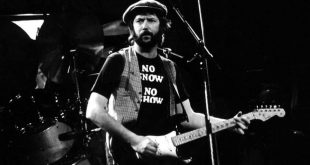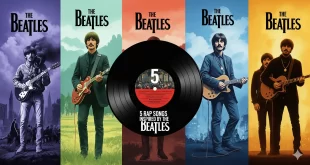The 1960s was the most transformative decade in the history of modern music, marked by cultural revolutions, political upheavals, and artistic reinvention. Two bands stood at the forefront of this change: The Beatles and The Rolling Stones.
Both were British. Both were wildly successful. Both reshaped rock and roll. But they did so in strikingly different ways. While The Beatles were seen as lovable and inventive, The Rolling Stones carried a rebellious, edgy, and raw image.
The media loved to pit them against each other, but the real question is: Who truly ruled the 60s?
In this article, we’ll compare The Beatles and The Rolling Stones across various dimensions—music, popularity, influence, image, innovation, and cultural legacy—to uncover the real champions of the decade.
1. Musical Innovation: The Beatles Take the Lead
When it comes to musical experimentation, The Beatles were light-years ahead.
From Rubber Soul to Revolver and Sgt. Pepper’s Lonely Hearts Club Band, The Beatles pushed boundaries with:
- Studio innovations (multi-track layering, reversed tapes, orchestras)
- Unusual instruments (sitar, Mellotron, Moog synthesizer)
- Genre-hopping: pop, rock, Indian, psychedelic, classical, even vaudeville
While The Rolling Stones stayed closer to their blues-rock roots, albums like Aftermath and Their Satanic Majesties Request did show some experimental flair. But musically, they were followers rather than leaders in the innovation race.
✅ Winner: The Beatles
2. Raw Rock Energy: The Rolling Stones Reign
If The Beatles were the polished pop princes, The Rolling Stones were the street-hardened rock rebels. They embodied the spirit of sex, drugs, and rock ‘n’ roll more authentically.
Their gritty, blues-infused sound found full expression in hits like:
- Satisfaction
- Paint It Black
- Sympathy for the Devil
- Jumpin’ Jack Flash
While The Beatles got more experimental, The Stones remained rooted in raw rhythm, swagger, and attitude—a sound that laid the foundation for hard rock and punk.
✅ Winner: The Rolling Stones
3. Commercial Success: The Beatles Dominate Charts
In terms of sales, The Beatles were virtually untouchable in the 60s.
By the end of the decade:
- The Beatles had 20 U.S. #1 hits, the most of any artist.
- Their albums (Sgt. Pepper, Abbey Road, The White Album) topped charts globally.
- They outsold The Rolling Stones by a wide margin during the 60s.
While The Stones had massive hits and longevity, they couldn’t match The Beatles’ record-breaking commercial momentum in the 60s.
✅ Winner: The Beatles
4. Cultural Influence: It’s a Tight Battle
The Beatles:
- Pioneered album-as-art concepts
- Influenced global youth culture (fashion, haircuts, peace movement)
- Promoted Eastern spirituality and drug consciousness
- Became symbols of the 60s counterculture
The Rolling Stones:
- Defined the “bad boy” rock star archetype
- Inspired rebellion, nonconformity, and anti-establishment ideals
- Represented the darker, edgier side of the 60s
- Lyrically and visually challenged the status quo
This category is more subjective. While The Beatles reached wider audiences and symbolized peace and change, The Rolling Stones personified danger and freedom—two sides of the same 60s coin.
🤝 Winner: Tie
5. Stage Presence and Live Performance: Stones Steal the Spotlight
The Beatles famously stopped touring in 1966, frustrated with poor sound quality and Beatlemania hysteria.
Meanwhile, The Rolling Stones flourished on stage, building their legend through electric performances and stadium shows. Their 1969 American tour was iconic and helped lay the groundwork for the modern rock concert.
✅ Winner: The Rolling Stones
6. Longevity and Band Dynamics: Stones Outlast the Fab Four
The Beatles broke up in 1970, at the height of their powers. Internal conflict, business disagreements, and creative divergence caused the split.
The Rolling Stones, on the other hand, kept going, and are still performing decades later.
While this category leans into the 70s and beyond, their ability to stay together and evolve gave The Stones a longer cultural shelf life.
✅ Winner: The Rolling Stones
7. Songwriting and Lyrics: Lennon-McCartney’s Legacy
It’s hard to beat the Lennon-McCartney songwriting partnership.
Their lyrics evolved from innocent love songs to deep philosophical, political, and poetic themes. Even George Harrison contributed some of the most beloved Beatles songs like Here Comes the Sun and Something.
While Jagger-Richards were incredible songwriters in their own right, crafting hits like Gimme Shelter and Angie, they didn’t quite reach the breadth, depth, or consistency of Lennon-McCartney.
✅ Winner: The Beatles
Final Scorecard
| Category | Winner |
|---|---|
| Musical Innovation | The Beatles |
| Raw Rock Energy | The Rolling Stones |
| Commercial Success | The Beatles |
| Cultural Influence | Tie |
| Live Performance | The Rolling Stones |
| Longevity & Cohesion | The Rolling Stones |
| Songwriting & Lyrics | The Beatles |
Conclusion: Who Ruled the 60s?
The Beatles ruled the 60s in terms of innovation, influence, and sheer musical impact. They were the soundtrack to a generation’s evolution—from innocence to introspection to revolution.
But The Rolling Stones kept the fire burning longer, embodying the gritty side of rock and roll and keeping the spirit of rebellion alive well beyond the decade.
In the end, both bands ruled—just in different kingdoms.
If you want the soundtrack of transformation and imagination, listen to The Beatles.
If you crave grit, rebellion, and bluesy rock attitude, crank up The Rolling Stones.
Suggested Posts for You:
- 🎶 The Hidden Meanings Behind Beatles Lyrics
- 🎸 Rolling Stones Greatest Songs Ranked
- 🧠 Lennon vs. Jagger: Who Was the Real Genius?
FAQs
Q: Were The Beatles and The Rolling Stones really rivals?
A: Media hyped the rivalry, but the bands were actually friends. They respected each other and even collaborated at times.
Q: Did The Rolling Stones ever outsell The Beatles?
A: Not in the 1960s. The Beatles dominated sales, but The Stones held their own and outlasted them in the decades that followed.
Q: Who was more influential globally?
A: The Beatles had broader global appeal in the 60s, but The Stones had a lasting influence on rock subgenres like punk and metal.







5 comments
Pingback: Marianne Faithfull and The Beatles: The Classic Songs She Nearly Recorded
Pingback: Why Mick Jagger Called The Beatles’ ‘Yellow Submarine’ “Silly” — And Why It Matters - The Beatles
Pingback: “Just Stunning”: The Beatles Album That Raised the Bar for Paul Stanley - The Beatles
Pingback: The Beatles Albums Keith Richards Criticised: “Didn’t Serve His Guitar Sound” - The Beatles
Pingback: Keith Richards vs. Oasis: Why the Rolling Stones Legend Couldn’t Stand the Britpop Icons - The Beatles